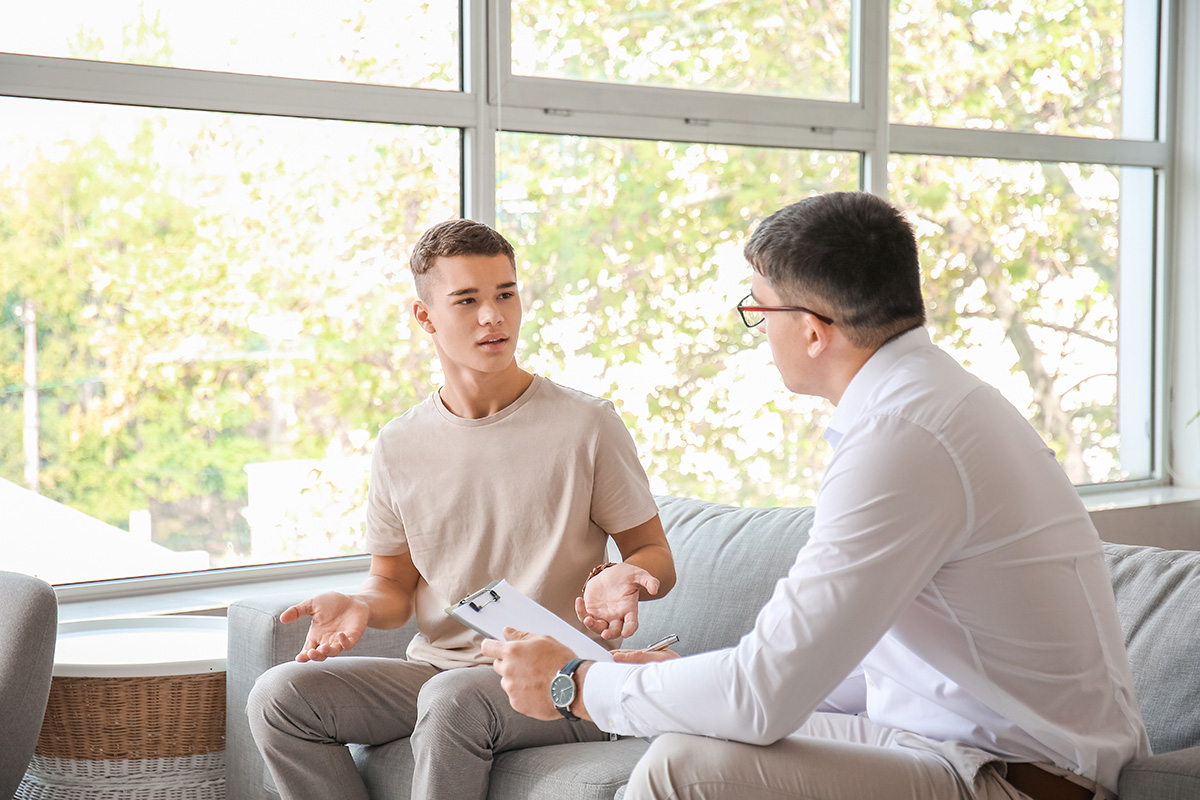4 Signs of Anxiety Disorder
[vc_row][vc_column][vc_column_text]While everyone experiences anxiety from time to time, when it is a persistent and disruptive part of life for someone, it becomes a disorder. Anxiety disorders are incredibly common and impact more than 40 million adults in the United States alone. Teens can also suffer from anxiety disorders, and this mental health issue may make it difficult for them to concentrate on schoolwork, enjoy socializing with others, and pursue extracurricular activities. Learn more about the signs of anxiety in teens to identify potential issues and reach out for help when your teen needs it.
What Are Anxiety Disorders?
Several different types of anxiety disorders can impact teens. They are generally characterized by persistent, often debilitating feelings of worry or fear. Some of the most common types of anxiety disorders include:
- Generalized Anxiety Disorder – Excessive worry or fear about everyday events that is not necessarily triggered by a certain situation
- Social Anxiety Disorder – Fear of embarrassment or judgment in social situations
- Separation Anxiety Disorder – A fear of being apart from parents or other caregivers
- Panic Disorder – Repeated panic attacks due to anxiety
Four Signs of Anxiety Disorder in Teens
The specific symptoms of anxiety disorders in teens will look different for every individual. Two teens who both struggle with social anxiety may have entirely different triggers and coping mechanisms. However, there are some common signs of anxiety disorders in teens that can indicate that your child would benefit from a comprehensive treatment plan.
1. Panic Attacks
Panic attacks are not always a symptom of a panic disorder. Instead, this symptom can be a sign of anxiety disorders in teens. During a panic attack, the individual will experience feelings of intense anxiety that may be accompanied by physical sensations such as:
- Shortness of breath
- Chest pain
- Heart palpitations
2. Trouble Concentrating
Teens who feel anxious will often have a hard time focusing on the task at hand. This can be challenging for students, and even high-achieving, straight-A students can be sidelined by anxiety. In fact, school can be a trigger for anxiety in some teens. They might feel pressured to get certain grades, share their lives on social media, or experience anxiety concerning social situations that can make it difficult to focus.
3. Trouble Sleeping
One of the most challenging physical symptoms of anxiety in teens is difficulty sleeping. While teenagers might have a reputation for sleeping long hours, those who struggle with anxiety disorders might have the opposite problem. Anxious thoughts and worries can keep teens up at night, leading to even more difficulty concentrating the next day, which can compound the issue.
4. Suicidal Thoughts or Behaviors
Suicidal thoughts are commonly linked to depression. However, one sign of anxiety in teens is intrusive suicidal thoughts, which can co-occur alongside anxiety. If your teen has expressed thoughts of suicide or has attempted to follow through on these thoughts, reach out for help right away.
How to Deal with Teenage Anxiety
Sometimes, learning how to deal with teenage anxiety means visiting a therapist once a week. Other times, the anxiety and symptoms are so intense, your teen may need long-term care. At Ascend, we have experience working with teens struggling with anxiety. Our behavioral health facilities provide a peaceful place where they can address their issues, work through the root causes of their anxiety, and learn coping mechanisms to help them face their fears without allowing their lives and academics to be sidetracked.
We have two facilities with expert clinicians that can help your child. Give us a call at 310.388.3713 or reach out online for more on our treatment programs.[/vc_column_text][/vc_column][/vc_row]



